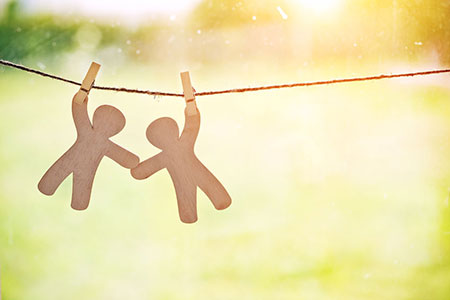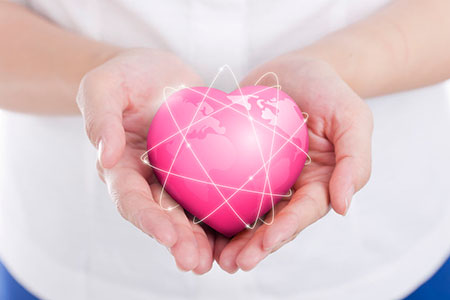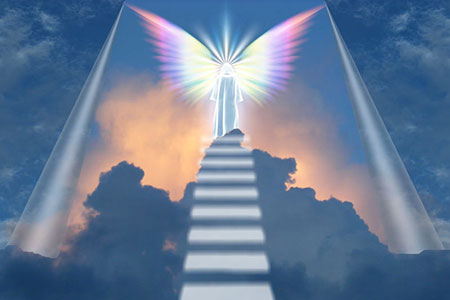empathy
The Dreamy Neptunian Waters Of Sean Connery
 This year, on All Hallow’s Eve, I received news that truly rattled me. Halloween is normally a magical time for me, but I was left shaken with sadness this year, because one of my most beloved heroes, Sean Connery, had passed.
This year, on All Hallow’s Eve, I received news that truly rattled me. Halloween is normally a magical time for me, but I was left shaken with sadness this year, because one of my most beloved heroes, Sean Connery, had passed.
I think of Connery as Indiana Jones’s ingenious, funny dad, or as Daniel Dravot in The Man Who Would Be King, as well as the handsome love interest Mark Rutland in Hitchcock’s Marnie. But most of all, he is the true James Bond 007 original, of course, to which all subsequent iterations pale in comparison (although Daniel Craig does come a close second in my opinion).
Taking a peek at this iconic movie heartthrob’s astrological chart, one discovers some interesting nuggets as you dive deeper into his mysterious Neptunian waters!
His humble beginnings on “the street of a thousand smells,” as Connery once described it, was anything but easy. This is evident in his natal chart, with the serious nature of Capricorn, with its retrograde ruler, Mercury, sitting on his Ascendant.
However, this is also why he managed to make something of himself, often by using purely his wits, versatility and ingenuity, because Mercury is a capable planet placement that ruled his house of hard work! True to his Virgo nature, he worked diligently on his physique to become a notable bodybuilder, for example, which laid the foundation for his future stardom. The Moon in his 9th House further gave him the imaginative mind and empathetic understanding he needed to become so successful internationally.
An 8th House Virgo Stellium (a cluster of three or more planets in a single sign or house), made this meticulous, down-to-earth Virgo very much the perfectionist, and contributed greatly to the legend he ultimately became.
The Need For Empath Self-Care
 In times of great stress an empath may neglect their own needs in favor of others, and start to lose the unique perspective they bring to the world.
In times of great stress an empath may neglect their own needs in favor of others, and start to lose the unique perspective they bring to the world.
Since most empaths, by their very nature, want to help others, finding a balance between using their gifts, while practicing self-care, can be tricky. Simply put, it’s easy in these times for empathic people to become overwhelmed.
Empaths feel the energies of the world much stronger than others, and can pick up on the subtle changes in the emotions and intentions of those around them. The empath serves as both a mirror and a prism to the world and its energies. Being an empath feels as if your ‘personal filter’ has been turned off, and naturally, there are many things in our noisy, hectic world that can trigger empaths.
Whether it be the chaos of others arguing or fighting; the feeling of getting lost in a crowd; the sense that others are being phony or inauthentic; or just too much on one’s emotional plate all at once; the empath may begin to withdraw, or even shut off from the rest of the world, when it all becomes too much.
Think of an empath’s ability to pick up on energies like a motion-alarm system which is constantly being tripped by any form of movement or activity. In this case the motions are the energies, emotions, and forces which shape our world. The empath has to deal with the stresses of this constant barrage.
Not only is the empath surrounded in modern society by constant incoming sensory stimuli: flickering images, flashing lights, loud music, conversations, and ambient noise, but also moving in though an ocean of all kinds of good and bad energy. Finding time and space to shut off all the noise, and block out all the negative energies, needs to be part of an empath’s daily self-care routine.
When Tempers Flare – A Message From My Guides
 These are very uncertain times. The planet has been engulfed with worry due to the rampant spread of the novel coronavirus. Some regions of the planet have been harder hit than others, and some areas have been unable to maintain a tight control over the spread of this new disease.
These are very uncertain times. The planet has been engulfed with worry due to the rampant spread of the novel coronavirus. Some regions of the planet have been harder hit than others, and some areas have been unable to maintain a tight control over the spread of this new disease.
In addition to the illness itself, both financial and food insecurities are now affecting many more households. Businesses are being forced to close. People have lost their employment. Some positions have ceased to exist altogether. Government stimulus and rescue funds have been helpful, but in some cases, have not been received in a timely manner.
The stress on individuals and families trying to keep their heads above water has been monumental.
Meanwhile, the work demands placed on medical professionals, frontline workers and first responders have intensified at a rapid speed. For many their hours of duty have seemed endless and their personal risks and sacrifices are significant. They are being thrown into worst-case scenarios that would not have seemed imaginable only a few short months ago. They have further been hampered by the lack of supplies, and the overwhelming numbers of people infected in a relatively short period. The stress faced by these professionals has been relentless. Continue reading
How To Be A Good Friend
 I just read a blog written by a spiritual person feeling angry and lonely. She had reached out to a trusted friend, but the friend only wanted to talk about her own problems. And when she did pay some attention to her plight, the best the friend could offer was to be judgmental and unsympathetic. The author then also reached out for support on a social media group for spiritually aware people. Again, all of the members did the same thing her friend did: they judged!
I just read a blog written by a spiritual person feeling angry and lonely. She had reached out to a trusted friend, but the friend only wanted to talk about her own problems. And when she did pay some attention to her plight, the best the friend could offer was to be judgmental and unsympathetic. The author then also reached out for support on a social media group for spiritually aware people. Again, all of the members did the same thing her friend did: they judged!
The woman was having problems with her abusive neighbor and many people on the forum were giving advice for her to leave. They told her to move, find a better place to live, relocate. “Moving is 100% your choice,” one person commented. The first thing I thought was no, it isn’t. This particular woman, for example, had bought the house and had put a lot of money into renovating the house. She would need to sell, at a time when not many things are selling, and possibly suffer a significant financial loss.
Some even told her to get more exercise, so that she can relax and focus on other things. They told her she was responsible for her own choice of reactions and feelings in the situation. The only insensitive, stereotypical thing they didn’t say was to take a breath and calm down. Don’t you just hate it when someone says that? It does everything, but calm you down!
The people responding, in their judgment, needed to feel superior. It was about them, not her. Her responses were defensive, understandably. I felt by her response, they made her feel more lonely. Poor woman.
Choose Kindness – A Message From My Guides
 In these times of uncertainty, worry and fear, we urge you to step back and let kindness prevail. It is more important than ever to take a breath before reacting to what might normally seem to be an insensitive comment, or blatant oversight.
In these times of uncertainty, worry and fear, we urge you to step back and let kindness prevail. It is more important than ever to take a breath before reacting to what might normally seem to be an insensitive comment, or blatant oversight.
Even people who are usually even-tempered and relaxed can currently be on edge after months of sheltering in place, and it is impossible to understand what every individual may be going through right now, or how difficult their circumstances might be day-to-day. This does not condone their negative behavior, but it does give you an opportunity to rise above the fray, before responding in kind.
Keep in mind that, although everyone is currently in the same boat, each situation is entirely different. One person might have very limited finances, and truly worry about putting food on the table. Another might be a single parent, with children to home school, in spite of having to leave their home every day to also work as a first responder or an essential service worker. No two sets of circumstances are alike, and to each individual their personal challenges will be of paramount importance.
Listen before reacting. Pause. Try to empathize with the other person’s point-of-view, instead of the way it is being presented. Try to see past a short-tempered response, or erratic explanation. A smile and a patient ear will often diffuse a tense situation.
The good news is that the circumstances in your world are gradually improving, and there are many positive occurrences on the horizon. The Sun continues to rise every day, while thousands of scientists and medical experts are working around the world to bring about vaccines and treatments to fight this latest suffering. Millions more have ramped up their service in offering medical, emotional and financial support to those in need. Each day, there is another glimmer of hope in many different parts of the world.
How To Be Patient In Times Of Crisis
 Just about every day, we face some sort of obstacle, delay in communication, or a situation that doesn’t go our way. And in times of an unexpected crisis, our first response is too assume the worst, or panic.
Just about every day, we face some sort of obstacle, delay in communication, or a situation that doesn’t go our way. And in times of an unexpected crisis, our first response is too assume the worst, or panic.
Negative feelings can creep up and overtake the mind, sending us into fits of rage, sadness or disillusionment, due to the lack of patience in surrendering our control and allowing those emotions to pass with total acceptance.
When we become impatient, our entire being is out of balance and the auric energy field becomes muddy and chaotic. Agitation and strain then become the primary motivator, and there is a loss of self-awareness within.
Impatience never makes things happen faster, or better, and the worst way this can manifest is when we try to force an issue, or get a person to instantly say yes, or go along with our vision.
Whenever impatience or uncomfortable feelings arise, it’s vital to make a conscious effort to redirect that negativity and nip it in the bud, so you can stay calm during the toughest times. Here are some strategies to help alleviate impatience when your feeling triggered.
Breathing
Take several deep breaths from your stomach and exhale out the stress, focusing on your third eye as you release your breath. Think of something funny or inspirational so you don’t unleash unnecessary aggression.
